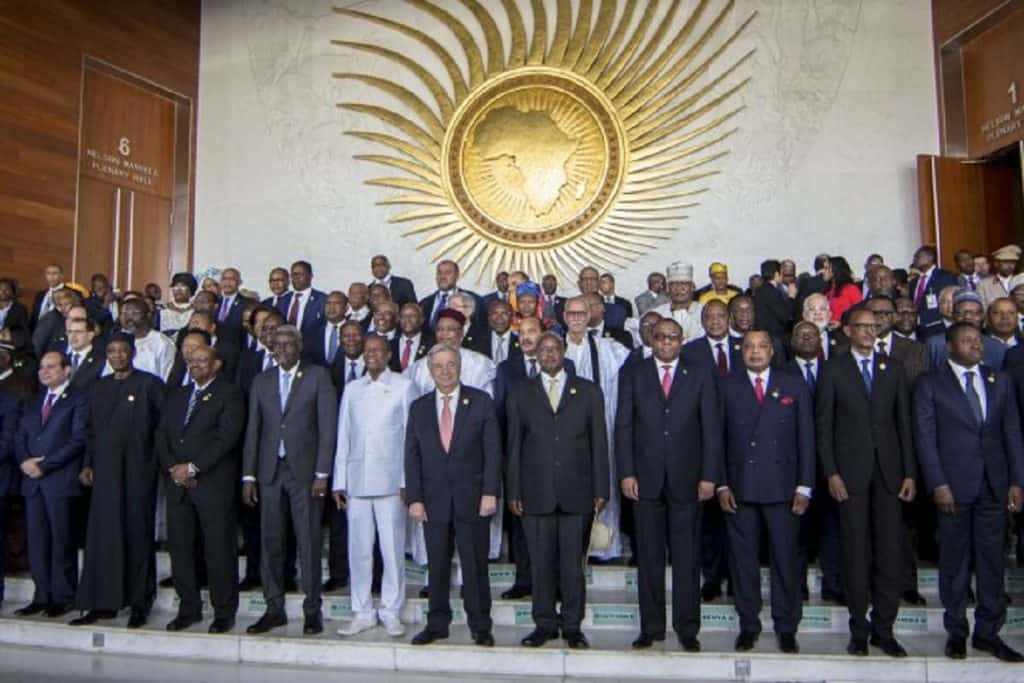By Denis Korkodinov
The African Union began to show great attention to the development of the conflict in Libya, which was caused, first of all, by the organization’s desire to strengthen its image in the international arena and prevent the development of a humanitarian crisis threatening all African countries.
In addition, the Libyan file has long ceased to be an exclusively national problem, becoming a regional problem. For this reason, international organizations, including the African Union, are involuntarily involved in the decision-making process regarding the confrontation between the Libyan National Army and the Government of National Accord.
During the summit of the African Union, which was held in Congo last week, according to a number of experts, success was achieved in organizing the next international conference on Libya. At the same time, the African Union is ready to undertake the mediation mission and, together with the United Nations, try to adhere to the three-stage path adopted during the Berlin Conference and aimed at resolving the conflict.
Algeria intends to play the most active role in the Libyan file. At the very least, the Algerian government plans to provide its venues for the organization of an international conference to be held in July 2020 if the coronavirus pandemic does not make significant adjustments to state plans. It is expected that the event will bring together representatives of most Libyan tribes, as well as the leadership of the warring parties, who will be invited to develop a national consensus program. However, experts doubt that Khalifa Haftar and Fayez al-Sarraj are prepared in the present conditions for a truce, which they have repeatedly violated.
Apparently, the recent official visit of the President of the State Council of Libya, Khaled al-Mashri, to Algeria and Mauritania was aimed at clarifying the position of the African Union regarding the Libyan crisis and aimed at preparing a negotiating platform for the subsequent meeting in large format. In any case, against the backdrop of a coronavirus pandemic, the parties to the conflict in Libya could agree to limit military operations until the epidemiological situation normalizes.
Meanwhile, Libyan political experts doubt that the African Union will be able to reconcile the warring parties. The problem is that in most countries of the alliance, the main levers of government are in the hands of representatives of the army, who seized power as a result of coups. In this regard, the leaders of African countries may be at least not ready to use diplomatic means to force the parties to the Libyan conflict to peace and, as a maximum, have no authority in the international arena, and therefore their voices are unlikely to be heard in Libya.
The protracted confrontation between the Libyan National Army and the Al-Vefak government has already become an integral part of the Libyan brand. For this reason, many members of the international community are not interested in an era of stability in Libya that threatens to lose control of the parties to the conflict. On this basis, the initiative of the African Union is unlikely to meet with the approval of some interested countries (France, Russia, Turkey, Egypt). And without international approval, the African Conference on Libya will be a futile event.
Among other things, Algeria will not offer a unique method for resolving the conflict, but rather will limit itself to resuming the discussion on the conditions adopted following the results of the Berlin Conference. In this regard, Khalifa Haftra and Fayez pl-Sarraj are likely to show little interest in the announced conference. And only because the parties to the Libyan crisis rejected the decisions that were adopted in Berlin, with a high degree of probability, they will reject the decisions taken in Algeria.
The main problem of the Libyan conflict is that it arose because of the desire of certain groups to provide control over the resources of the state, which are of geopolitical and geo-economic importance. These resources are inextricably linked with local tribes, which are very sensitive to any attempts to limit their interests. Therefore, the conflict in Libya can be resolved only by finding consensus between all tribal groups. However, this is practically an impossible task, since the tribes differ from each other in religious terms, which is the main stumbling block.
(The views expressed in this article belong only to the author and do not necessarily reflect the views of World Geostrategic Insights).
Image Credit: Reuters







